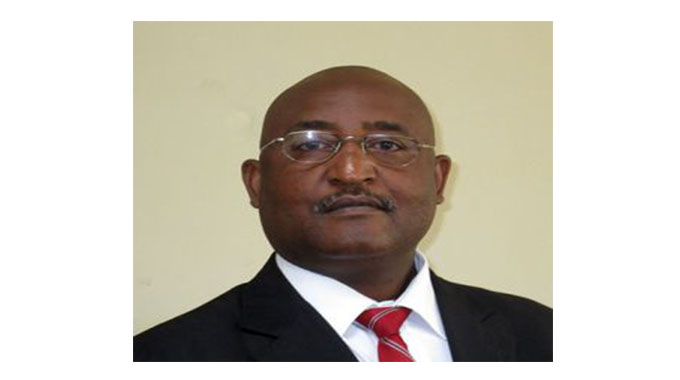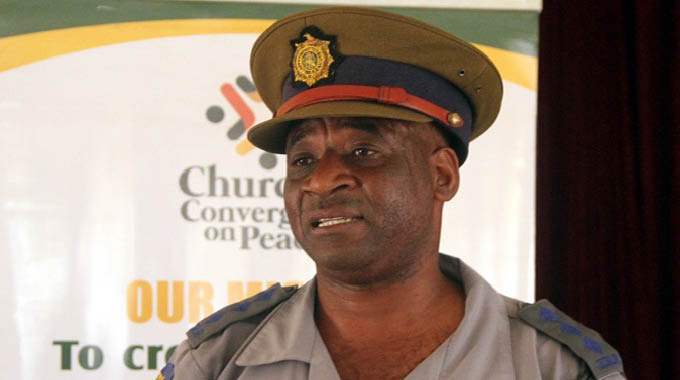Give unlicensed drivers stiffer penalties

Hazel Marimbiza
Last month, some publications published a heartrending story about an unlicensed 26-year-old man who lost control of his vehicle, drove it along Jongwe Street in Mucheke D, Masvingo and ran down seven pedestrians. Three people were killed while four were injured.
For all this, the man was only charged for culpable homicide and driving without a licence.
This is nothing more than a slap on the wrist and can only be described as a mockery of justice.
The man was charged for culpable homicide because he did not intend to kill his three victims and injure the other four, but the fact that he drove without a licence should have been an aggravating circumstance and should have seen the man spending time behind bars for murder.
Being involved in a car crash is an accident and we understand this happens, but the gravity and severity of the offence should increase when one is driving without a licence hence there is need for the country’s courts to be more punitive.
The sanctity of life should be preserved at all costs and such crimes should be punished more harshly.
Too many lives are lost needlessly on the country’s roads and this will not be helped by courts being lenient on unlicensed drivers who go on to cause accidents.
Commenting on the incident, Traffic Safety Council of Zimbabwe (TSCZ) information and communications officer Mr Tatenda Chinoda said penalties of unlicensed driving must be revised.
“Unlicensed driving must not attract a fine, but a custodial sentence in the event that the driver has caused the death of people. For example, in the recent case of the 26-year-old man who ran over seven pedestrians resulting in the death of three, the case must not be treated as culpable homicide but as murder.
“The tragedy of death is not that things are broken but that dead people can’t be resurrected. To be driving on our roads without a licence is wrong. The life of a motor vehicle can be insured but the lives of human beings can never be recovered,” said Mr Chinoda.
The TSCZ has started lobbying Government to impose mandatory custodial sentences to people who drive without licences among other stiffer penalties on errant drivers.
National statistics show that 90 percent of road traffic accidents are caused by human error, and are, therefore, avoidable.
When one drives without a licence, they are bound to make more errors which too often result in accidents and loss of life.
Unlicensed drivers have been blamed over and over again for contributing to the spike in road accidents.
Speaking at the official launch of the Accident Vehicle Fund consultative meeting in Karoi recently, Transport and Infrastructural Development director, Mr Allowance Sango, said motorists driving public service vehicles were either unlicensed or underage, hence the increase in road accidents.
“We’re facing challenges because we have too many ghost drivers on our roads. They don’t have the required documents including driver’s licences. Most of the drivers driving public transport are less than 25 years old without a minimum of five years’ experience to drive public transport. If you ask for a licence, they produce a blue one that is fake,” he said.
“What this reveals is that we have fake drivers on our roads. The only proper document they will have is a death certificate that awaits them after accidents. As passengers, we fall into the trap of ghost drivers fuelling accidents on our roads.’’
Mr Sango’s sentiments concurred with findings presented in a journal titled Traffic Injury Prevention, which sought to examine the association between unlicensed driving and car crash injury. Unlicensed drivers were said to be a high risk group for car crash injury.
A new report by the World Health Organisation (WHO) indicates that road traffic deaths continue to rise, with an annual 1,35 million fatalities. The WHO Global status report on road safety 2018 highlights that road traffic injuries are now the leading killer of children and young people aged five to 29 years.
“These deaths are an unacceptable price to pay for mobility,” said WHO Director-General, Dr Tedros Adhanom Ghebreyesus.
Although there are several other factors which result in road accidents, some of them are attributed to unlicensed driving and people have so often pondered on what can be done to solve this problem.
According to Mr Michael Bloomberg, Founder and CEO of Bloomberg Philanthropies and WHO Global Ambassador for non-communicable diseases and injuries, road safety is an issue that does not receive anywhere near the attention it deserves — and it really is one of our great opportunities to save lives around the world.
“We know which interventions work. Strong policies and enforcement and powerful public awareness campaigns can save millions of lives over the coming decades. There is no excuse for inaction,” said Mr Bloomberg.
He went on to highlight that road accidents are a problem with proven solutions, and called on governments and partners to take much greater action to implement the measures.
But the current argument is that so many campaigns have been done in Zimbabwe to lesson accidents yet we still find some people who are well versed with road rules disregarding them. Campaign after campaign on road safety, it appears, has failed to bring the desired effect on drivers.
Traffic police repeatedly remind drivers to drive safely and to think of their loved ones, but the message is not regarded.
In January, Matabeleland South provincial police spokesperson, Chief Inspector Philisani Ndebele warned motorists against driving without licences, after 25-year-old Mr Timothy Tsikai — an unlicensed driver — lost control of his vehicle and hit five people who were seated by the roadside, killing one in Beitbridge.
“Driving without a licence is an offence. People should desist from driving vehicles if they’re not licensed as they don’t have the relevant skills and training needed for one to be a driver. By so doing, they’ll also be committing an offence. Drivers are urged to exercise caution at all times and adhere to road regulations. Drivers should also desist from speeding and ensure they exercise caution at all times,” said Chief Inspector Ndebele.
The revenue that the police generate from traffic offences runs into millions every year — $15 million annually to be specific. This reflects the motorists’ disregard for traffic rules and the fine structure is hardly any deterrent.
In 2016, 12 054 unlicensed drivers were arrested by traffic police stationed at roadblocks in various cities, according to the Zimbabwe National Statistics Agency.
The following year, a total of 3 465 unlicensed drivers were arrested in the first quarter, compared to 2 524 drivers in the first quarter of 2016.
Though road accidents decreased between the last quarter of 2016 and the first quarter of 2017, officials say the number of accidents is still high. By March 2017, nearly 11 450 accidents were recorded across the country.
Unlicensed drivers have become a common challenge in Zimbabwe and this clearly shows that we have traffic rules but no traffic discipline.
Zimbabwe Passengers Association (ZPA) secretary Mr Paul Makiwa said there was a noticeable increase in incidents where motorists deliberately disobeyed road rules.
“As you have seen, statistics have increased and one of the reasons is that we have unlicensed drivers who are not obeying road traffic laws and they tend to speed,” said Mr Makiwa.
Bulawayo residents expressed mixed feelings over the increase in the number of unlicensed drivers. Some blamed the problem on the economy while others indicated that corruption is the root cause.
“There are lots of unlicensed taxi drivers who often resort to the risky job because they can’t find employment elsewhere. They say this is one of the most convenient ways to earn an income in the economy,” said Mr Moses Tshuma.
Another resident blamed the police for accepting bribes.
“Some unlicensed drivers can drive for years without getting caught, because the drivers pay bribes to the police. You just give an officer manning a roadblock a few dollars, and they let you go,” said a resident who only identified herself as Mai Shamva.
Mai Shamva said corruption was to blame for the increase in road accidents, where police officers and court officials were accepting bribes and letting unlicensed drivers go.
While the country is seeing an increase in the number of unlicensed drivers, who are likely to cause more accidents, what is also concerning is that road accidents do not only result in loss of life but also cripple the country’s economy.
According to the Minister of Transport and Infrastructural Development Joel Biggie Matiza, on average, road traffic deaths, injuries and property damage caused mostly by human error which in some instances is caused by unlicensed driving results in loss of three percent of the country’s Gross Domestic Product (GDP).
“Such a loss is unacceptable since it militates against the attainment of our nation’s Vision 2030.
“Our national target, as guided by the UN Decade of Action for Road Safety, is to reduce road traffic deaths by 50 percent or more by the year 2030.
“This target is realistic and achievable especially if all stakeholders involved in ensuring road safety work as a team,” said Minister Matiza.
He added that the pain, suffering and economic loss experienced by affected individuals and families as a result of accidents is unbearable.
“Road traffic injuries place a heavy burden, not only on the national economy, but also on household finances.
“Many families are driven deep into poverty by the loss of breadwinners and the added burden of caring for members disabled by road traffic injuries.
“The dependency burden for close relatives also increases when their brothers or sisters, who were breadwinners, are lost due to road accidents,” said Minister Matiza.
Having noted the pain and loss caused by unlicensed drivers, what is clear is that the law needs to take its course in punishing traffic offenders more thoroughly. Until now, such an approach seems to be missing as the violators of traffic laws are rarely punished ruthlessly by the courts.











Comments